#deviance
Text
Waste
You and I have something to hide
In this old town, the rot’s a glut
That fuzzes us. Drinks the juice that flows.
Easy to deride, to cut the nose
Shall we still stay all wrapped up?
In nonsense crap I try to map
the new old news, my future views.
Strapped or sapped, I’d tap no doubt
If I could pull my finger out.
And what’s to keep in you and me?
A rage, a right, we won’t give in without a fight
We know to squander would be easy
Squeeze my reason in this city -
Whisper it soft away from light.
When I was young I bit the lemons
Licked and drank and sucked them, down
Citron Pressé my drink of choice
And now I start to raise my voice.
The uncertain smiles with which we strain
Take miles and money to maintain.
And all the while, in piggish pearls, in dirty rain
I’ll tell you a secret I can taste
That you and I won’t go to waste.
#poetry#friendship#creativity#rage#defiance#stress#london#minimum wage#poverty is ineffably wonderful life is worth living#life#angst#deviance#we shall overcome#poet#writing#rhyme#judge me if you dare#my writing#aspiring writer#aspiring author#spilled ink#creative writing#writers on tumblr#poets corner#literature#poets on tumblr#verse#original poem#original poetry#awful poetry
8 notes
·
View notes
Text

Horrid crime in the trees, never to be seen again
#art#collage#core#emo#goth#drain gang#weirdcore#webcore#wound#ethel cain#hauntedmound#coquette#green#deviance#2014#pale#violencecore#horrorcore
9 notes
·
View notes
Text

Everyone, from all walks of life, can admire and appreciate Kirishima's manliness including our writer, @ao3-deviance!
"Hi hi~ IRL I'm more like Jirou, but I admire Kirishima's manliness and am excited to share the appreciation for our Best Boy!" -Deviance
TYSM for any shares!
@atozines @bnhabulletin @bnha-community-board @bnhafandomcalendar @bokunozines @uahigh-newsletter @fandomzines @zineforall @zinecenter
#kiri zine#kirishima zine#rriotzine#bnha#boku no hero academia#eijirou kirishima#kirishima eijirou#my hero academia#mha#contributor spotlight#zine writer#deviance
17 notes
·
View notes
Text
Outrageously Normal
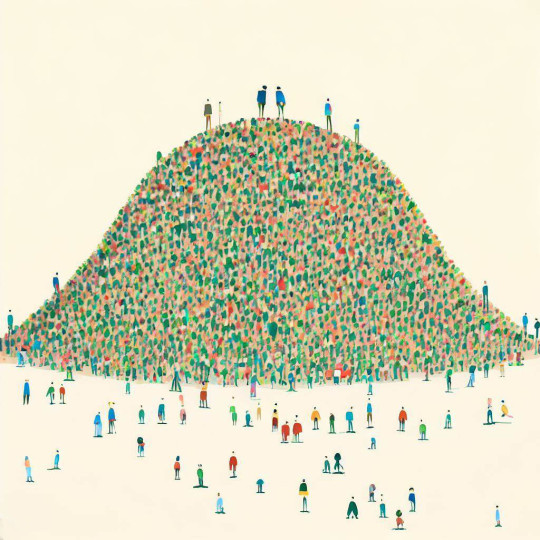
What is normal? And what is outrageous?
What do we really mean by deviance?
Does wanting someone to spank you bottom until it’s pink and sore make you deviant, or excitingly adventurous and alluring? To a mathematician deviance is an objective measure, not a moral judgement, representing how different a particular characteristic is from the average of every known occurrence.
If you were the only individual in the whole world who craved a smacked bottom, it might indeed seem rather weird to anyone you confessed your secret. Yet what we call deviance is really a degree of novelty, the likelihood of anyone encountering it before. Every subsequent time you discover someone who also likes smacked bottoms, the less weird and deviant your interest seems.
Previously, I’ve talked about why it’s important to be erotically curious, to actively explore our own fantasies, and ask questions about what turns us on. But it's also useful to be aware that we seek answers at two different levels of our minds, a higher rational level, and a lower more fundamental emotional one.
Typically when we ask our rational minds a question, we receive an answer through our inner voice in the form of words and ideas. But if we ask our rational mind an emotional question, sometimes we'll receive an answer in the form of awkward feelings that doesn't seem to make any sense at all.
When we need to query the more primal parts of our mind, about base needs like drive, desire, and sex - we receive answers in the form of emotions rather than words, which then need be interpreted. Everyone is familiar with that kind of introspection whenever we ask ourselves: how does this situation make me feel?
It can be difficult to understand our true feelings about important matters. Fishing our true stories and concerns from our unconscious minds is a skill in itself that can take a lifetime to master. It turns out wisdom isn't a knowledge of facts, it's an awareness and understanding of our feelings.
So many of our questions about sex are really requests for reassurance, hoping to know whether what we're doing is right or wrong. Whether we're normal or weird.
What our rational mind knows is the result of years of assimilating the average opinions of a staid and risk-averse culture. So if we ask our rational mind a primal question, the chances are we'll feel we're doing something quite outrageous. Daring to break the mundane conventions we've been taught to obey can often make us feel rather ashamed.
That's why it's so important to encounter transgressive points of view. We need to hear others talking about how they pleasure themselves, how they express their sexuality, and the fetishes they're no longer embarrassed about. That's why I'm always so thrilled when readers choose to share their fantasies with me.
Decorum prevents us from surveying strangers on the street for the details of their deepest desires. Fortunately erotic content, such as blogs and stories, helps to show us just how huge the spectrum of human sexuality really is, allowing us to develop an informed picture of what really turns others on.
Human sexuality is a bell curve, just like most collections of characteristics are. In these kind of "normal" distributions the horizontal axis reflects how far something is from the average, whilst the vertical axis depicts its frequency, like how many people in a given population are into some sexual activity, for instance. Hence the most popular activities form a big bulge in the middle, with the less common ones becoming the outliers at the edges.
There are two lessons to take away from this: frequency isn't a measure of acceptability, and deviation from the average isn't either. It's perfectly acceptable to have tastes that aren't shared by many others, or to lie far from the mainstream, whether it's music, literature, fashion, or anything other aspect of life. In fact, it's essential for our cultural diversity, otherwise our society would be very boring indeed.
As the online realm becomes ever more prudish, having permissive places to post is increasingly vital. Our culture needs platforms were adults can talk about adult things. We all need reassurance we're not as deviant as we fear we are.
This blog exists because sex-positivity matters. It is important we encounter experiences outside the norm, even if it's only to read about them. Such exposure gives us courage to step outside the boundaries of being 'proper', and permission to express our own individuality. We all have the right to be adventurous, even to be outrageous, and choose our own favourite flavours of joy.
9 notes
·
View notes
Text
Compliance, per the two main approaches to medical sociology
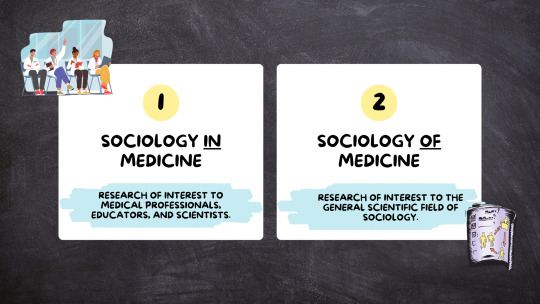
Sociology in medicine is research that’s of interest to medical professionals, medical educators, medical scientists— things that are important to medicine as an institution.
Sociology of medicine tends to be research of interest to the general scientific field of sociology, not only sociologists who study matters of medicine, health, illness, healthcare, and disability. Importantly, it is not that medicine is simply disinterested in sociology of medicine, the institution of medicine sometimes has a vested interest in silencing or arguing against sociology of medicine. Sociology of medicine may not be useful to medical professionals, but if, for example, sociology of medicine is critiquing medical practice, as is often the case, it might move beyond useless to being perceived as offensive.
To further explore the difference between sociology in versus of medicine, let’s take the issue of compliance.

From the medical perspective, patient compliance is vital for successful medical practice and treatment. if your patient is not listening to you–for example, if they’re not taking their medication, and that medication is supposed to get them better, than you are going to have a much more difficult time treating that patient, and thus, a much harder time doing your job, than if the patient “complied” with your treatment plan. Same thing if your patient won’t have surgery. Well, if operating is the way that you do your job and the patient refuses, you cannot do your job as well. So, sociology in medicine would examine compliance with this medical perspective in mind. Sociology in medicine might investigate the barriers to patient compliance, and they might ask about these barriers in terms of patient behavior, asking something like "why are these patients non-compliant?" with the goal of identifying things that can be addressed to help patients better comply, so that medical professionals can have better chances of success when trying to do their jobs.
Now, moving to sociology of medicine—the greater field of sociology is interested in issues of power and inequality. When examining compliance in terms of power and inequality, we might look at something like physician control over patients, which would contribute to areas of sociology beyond medical sociology, such as the larger sociological literature on deviance and social control.
From this perspective, physicians offer something that patients cannot obtain on their own—prescription medications, surgery, imaging…these are all things that are considered both illegal and dangerous when obtained from non-credentialed entities. This means patients must be compliant to avoid severe consequences, like physical injury, disability, or even death. Healthcare providers hold power to help people feel better when they have few, if any, safe alternatives.
Instead of looking at compliance as inherently positive or necessary, we can critique the concept, and most importantly, the continued endorsement of compliance as “positive” and “necessary” by credentialed actors in medicine. So, sociology of medicine, similarly to sociology in medicine, may examine barriers to compliance, but because it does not assume compliance is necessary or helpful to the patient, it leaves room to explore the patient experience. Sociology of medicine can explore things like mistrust of medical professionals, experiences with bias and discrimination in the clinical encounter, and the patient’s understanding of a potential treatment as helpful versus their belief that the treatment is useless (independent of the science on said treatment’s effectiveness).
So, while sociology in medicine and sociology of medicine might both be interested in the question of “why do patients become noncompliant,” sociology in medicine might approach that question with the intent of identifying something that will lead to increased compliance, whereas sociology of medicine may approach the question in terms of medical harm, so not taking the assumption that compliance is positive, instead, taking the more skeptical view that compliance might be an exercise of power on the part of the healthcare provider over the patient and focusing on issues like the potential for patterns of exploitation and/or harm of certain groups of patients with shared characteristics. Sociology of medicine might ask whether healthcare providers, because they are powerful, are inherently good or right. Sociology in medicine would probably not ask this question at all, instead assuming the answer to be "yes"
youtube
#sociology#studyblr#phdblr#social science#medblr#health science#research#paradigm#medical sociology#sociology of medicine#sociology in medicine#compliance#power#inequality#deviance#social control#medical sociology 101#Youtube
3 notes
·
View notes
Text
“In the previous chapter I reflected on happiness scripts as gendered scripts and how following such scripts is what orients subjects toward heterosexuality: for girls, you must become a woman by finding your happiness in the happiness of “a good man.” Happiness scripts could be thought of as straightening devices, ways of aligning bodies with what is already lined up. The points that accumulate as lines can be performatives: a point on a line can be a demand to stay in line. To deviate from the line is to be threatened with unhappiness. The unhappiness of the deviant has a powerful function as a perverse promise (if you do this, you will get that!), as a promise that is simultaneously a threat (so don’t do that!). Happiness scripts are powerful even when we fail or refuse to follow them, even when desires deviate from their lines. In this way, the scripts speak a certain truth: deviation can involve unhappiness. Happiness scripts encourage us to avoid the unhappy consequences of deviation by making those consequences explicit. The “whole world,” it might seem, depends on subjects being directed in the right way, toward the right kind of things. To deviate is always to risk a world even if you don’t always lose the world you risk. Queer and feminist histories are the histories of those who are willing to risk the consequences of deviation.”
Sara Ahmed, The Promise of Happiness
27 notes
·
View notes
Text
"Kill the King, Crown the Witches"
On April 24, 2009, I attended a Patrick Wolf concert in St. Petersburg. For those who aren’t familiar, Patrick is an English musician who is difficult to pigeonhole in a specific genre. He plays a wide variety of instruments and has a rather devoted fan base, which includes me. I considered myself very lucky: this was his first concert in the city and the venue was a short five-minute walk from…

View On WordPress
4 notes
·
View notes
Text
Much as I love iconoclasts I think it's also important to learn about iconoblasts and iconocytes
10 notes
·
View notes
Text

^My android sim, Nichole HR2001
Do not steal :)
#my sims#showusyoursims#sims community#the sims#sims 4 cc#sims 4#sims 4 custom content#sims 4 edit#sims cc#sims4#sims 4 screenshots#cc#sims 4 cas#hairs#skin details#detroit become human#dbh fanart#deviance#deviant connor#fashion#sims fashion#sims outfits#the sims 4#simblr#ts4#simblog#sims 4 simblr#ts4 simblr#sims#ts4 cas
42 notes
·
View notes
Text






A week in a glance❤️
2 notes
·
View notes
Text
"The "Cursed" Dragon" and "The Angel Of Death" Extras
With these last two backstories, I have a few things to show!
Annihil's story only one drawing sadly-

This is Annihil without his hood, I actually really like how he turned out despite him not looking how I pictured.
Here are the individual pictures of Marlene.
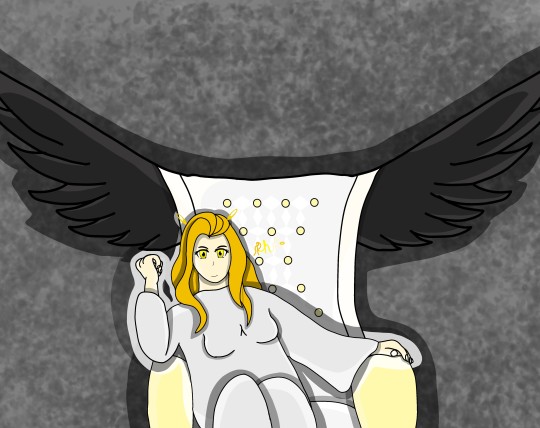
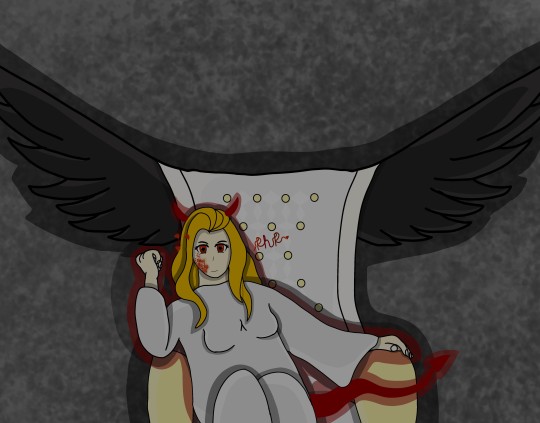
I tried to give her yandere vibes, not sure if I succeeded or not-
I have two nonshaded pics of Deviance and Snowball

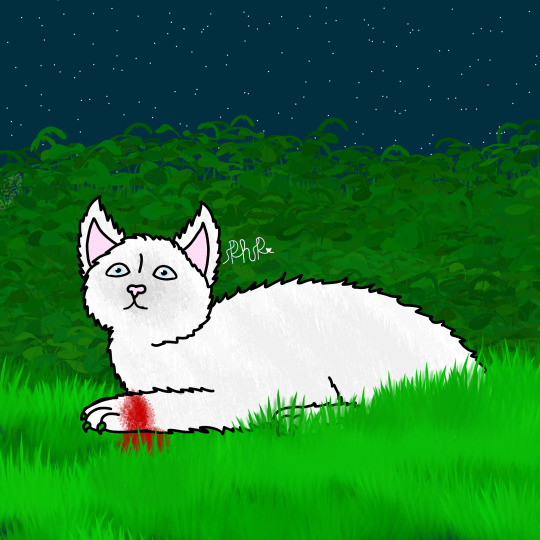
I suck at beards if it isn't obvious-
Finally, I drew some references for Razo'r runes, and included a copy of what I used to create my font, which makes it an easy language reference hopefully
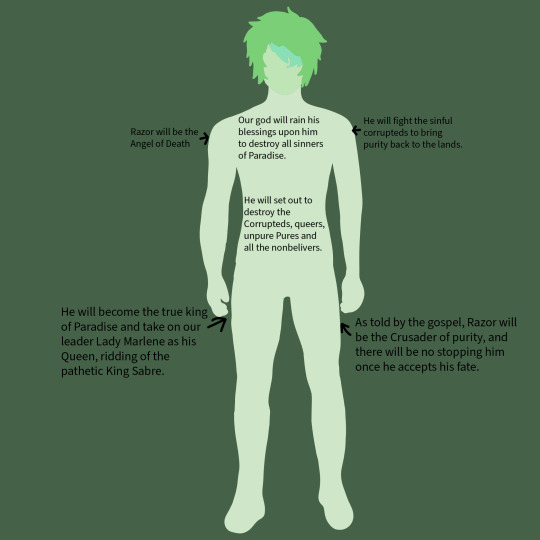
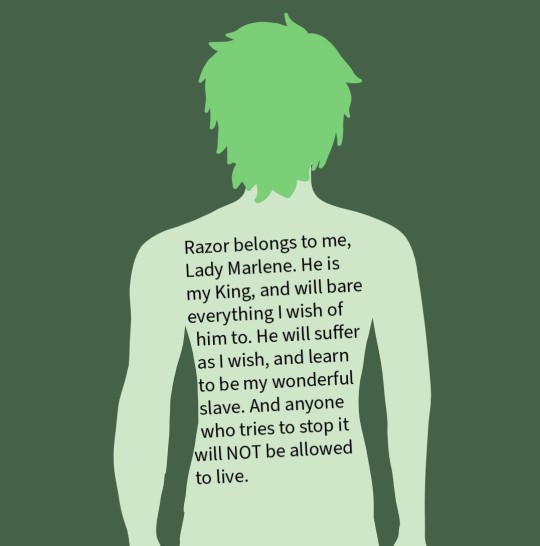
And that is all!
Thank you all for reading and enjoying, I worked hard on these
Next up... Is the Long Live Nock Remake.
Hope you all enjoyed!
#jsab#just shapes and beats#jsab’s#thraser#jsab annihilate#annihil#Lady marlene#deviance#snowball#blood tw#obsession#obsessive tw#pedophillia tw#religion tw#racism tw#homophobia#jsab oc#jsab ocs
2 notes
·
View notes
Text
| Love becomes deviance in the month of June.
6 notes
·
View notes
Note
When’s the last time Sidon and/or Bazz got into trouble? They both seem like good boys but everyone’s got a record! What were their punishments? If the boys aren’t willing to fess up, maybe Dorephan and Seggin would like to lol
This is a tough one because they are pretty good boys! Bazz has a clean record since becoming the captain of the guard. As a lower ranking officer, he got a few dings for things like waking up late or not cleaning his dorm thoroughly. His punishments would be extra drills or physical labor. He couldn't afford to be too naughty, with his lofty ambitions!
As a teenager, Sidon made a habit of sneaking away from his guards for romantic rendezvous and - the worst time - a tavern where he drank himself silly and discovered that sugar and alcohol don't make the nicest companions the day afterward. He was spied there by a gossip columnist, who snapped a photo of the inebriated prince and sent it to Dorephan demanding a ghastly sum of rupees in return for keeping the photo a secret. Dorephan kept the threat and knowledge to himself for a couple of days, calmly biding his time in the presence of his son but also making sure to put Sidon to work in the early morning when he had a hangover as punishment. Dorephan was tempted to allow the photo to be published to teach Sidon a lesson, but knew ultimately that would put the royal family in a precarious position. Sidon would never escape the reputation of drunk prince. Even with the public's admiration of him, the Zora king knew how quickly that opinion could turn sour.
Instead, Dorephan handed over the money to the columnist after securing proof that all photographic evidence was destroyed. A couple of days later, when Sidon complained about a headache, Dorephan asked quietly and without missing a beat, "I do hope you have not been drinking again?" To which Sidon's jaw dropped and his face turned beet red. To this day, he's not really big on drinking.
Dorephan cut Sidon off mid-stammer into his excuses to inform him of the photographic evidence and that he would need to work to pay the funds back into the royal exchequer, that he was not to breathe a word of it to anyone. If asked, he was supposed to tell them he was just after some real world experience - which made the public grow even fonder of their prince, as it made him seem very humble. It all worked out in the end, and Sidon turned out to be a natural at customer service in the Zora market.
6 notes
·
View notes
Text
AVOID THE EITHER/OR
On February 13th, with the posting, “Early On,”[1] this blog began a series of offerings that argue American society has higher levels of deviant behavior than one finds in many other societies – particularly advanced countries. This claim is hard to define and measure. Here is what Statista reports:
In the United States, violent crimes are defined as incidents involving force or the threat of force. … Comparing the number of committed crimes in U.S. by category, property crime far outnumbers violent crime, while aggravated assault accounts for some two-thirds of all violent crime. Over the last two decades, the number of violent crimes in the United States has fallen dramatically; there were 1.93 million violent crimes in 1992 in comparison to 1.2 million violent crimes in 2022. A similar story is told by looking at the violent crime rate per 100,000 residents, which factors in the role population growth plays in increasing the overall number of crimes.[2]
Or as Data Pandas reports:
Despite being one of the world's most developed countries, the United States ranks 52nd, with a Crime Index of 47.81. The relatively high index in an advanced nation like the U.S. underscores the fact that crime is not merely a problem of underdeveloped or developing countries but a universal challenge.[3]
While there are other nations with higher rates of crime and other forms of deviance, the above amply reports levels that should capture the nation’s attention.
Of course, there are many factors involved in this state of dysfunction. Using a historical approach, recent postings described the effects of various constructs, e.g., transcendentalism and perceptual psychology, in the development of this deviance. The postings have attempted to explain how the claims of these constructs dispose their advocates to champion meaningful degrees of individualism and self-centeredness, mental dispositions one can see as disposing people to engage in deviant behavior.
Consequently, such socialization has even led to problematic levels of other anti-social mindsets, even nihilism. Of course, all of this can’t help affecting how civics education will be conducted in American schools. A good deal of those effects are underlying factors and not conscious to the educators who man those classrooms. But before describing what these forces mean to curriculum, it is important to keep in mind that this is a societal problem. In no way can schools be given the task, single-handedly, of definitively solving the problem.
While this disclaimer might seem obvious, it has been the practice of societal decision makers to dump many components of the above situation in the “laps” of educators. Of course, this is counterproductive and only serves to stretch the limited resources schools have at their disposal to try to meet the educational responsibilities cited in these earlier postings.
What this blog will describe is limited to how the curriculum can, from its perspective, consider the forces causing the dysfunctional elements of this state of being, i.e., a society full of deviant related strife. This blogger hopes that interested parties understand the central source of these problems has had a long history and goes to the core of American attitudes.
Again, it’s a cultural problem. Only societal wide changes can shift these attitudes. That aim is surely beyond the ability of schools to accomplish. So, given all of this, what are the implications for social studies – that portion of curriculum most relevant to societal concerns emanating from its culture.
And here, a bit of context is in order: The general custom among people, this blogger notes, is to think dichotomously. In this case, either a person is authoritarian or democratic; either loves children or is indifferent to their needs. These are lazy reactions. The problems these postings address and the problems they have caused, place educators on guard against the easy, sentimentalist answers to those problems.
In that vein, this blogger is not against many of the sentiments expressed by those expounding the virtues of individualism – often mistakenly treated as being synonymous with liberty. The concern here lies in the fact that reality does not exist only in the domain of one’s own house and family, but also in the communal parameters individuals and families find themselves.
The overall described conditions this blog has reviewed have implications for the social studies curriculum but also curriculum in general. With a more contained ambition than is usually expressed by curriculum writers, what follows are adjustments that can allow a more useful posture given the challenges. That is, a functional curriculum should adjust in certain dimensions:
There should be a heavy emphasis on the concerns of communities – that in which a school’s students live and, in the nation, generally.
Knowledge, as an element of a curriculum, should be treated beyond sets of facts to memorize, but as functional, useful elements in solving societal problems or addressing societal concerns.
Curriculum proposals should be in the form of options that a teacher can manipulate, tweak, or otherwise accommodate the students and/or social conditions teachers face. And …
Discipline, beyond the prescriptions from perceptual psychology or any other strategy, should be treated by teachers in a realistic manner – avoiding simplistic generalized approaches (either too lenient, ala perceptual psychology, or too demanding, ala “I take no guff” approach).
These dimensions are suggested by the pioneer work on deviance by Emile Durkheim and Robert Merton.[4]
While a formal development of an argument suggested by Durkheim and Merton is beyond the purposes of this presentation, these sociologists’ collective work presents a social model for explaining deviance. And this marks a good place to end this posting and invite readers to click onto this blog’s next posting for a description of these giants’ contribution to addressing deviance.
[1] See Robert Gutierrez, “Early On,” Gravitas: A Voice for Civics, February 13, 2024, “Representations of Reality,” February 16, 2024, “The TV Effect,” February 20, 2024, “The Perceptual Angle,” February 23, and The Ongoing Factors Affecting Nihilism, February 27, 2024, URL: https://gravitascivics.blogspot.com/. Use archives feature to access individual postings,
[2] “Violent Crime in the U.S. – Statistics & Facts,” Statista, December 18, 2023, accessed February 28, 2024, URL: https://www.statista.com/topics/1750/violent-crime-in-the-us/#topicOverview.
[3] “Crime Rate by Country,” Data Pandas (n.d.), accessed February 29, 2024, URL: https://www.datapandas.org/ranking/crime-rate-by-country. Out of 136 countries, the US is ranked the 56th most crime ridden.
[4] Marshall B. Clinard, “The Theoretical Implications of Anomie and Deviant Behavior,” in Anomie and Deviant Behavior, edited by Marshall B. Clinard (New York, NY: The Free Press, 1964), 1-56.
0 notes
Text
“From such a vantage point, certainly, the study of deviance and of politics have little or nothing to say to one another. Yet events in the real world are increasingly revealing the operational and ideological content of this formal proposition about politics. From the normative point of view, all political action which is not expressed via the
electoral process, which does not contribute to the maintenance of party apparatuses, and is not governed by procedural norms is, by definition, deviant with respect to politics.But, as in all labeling theory, the question is, who defines which action belongs where? Operationally, the maintenance of boundaries between "politics" and "non-politics" and the casting of certain "political" acts into the "non-political" domain, are themselves political acts, and reflect the structure of power and interest. These acts of labeling in the political domain, far from being self-evident, or a law of the natural world, constitute a form of continuing political "work" on the part of the elites of power: they are, indeed, often the opening salvo in the whole process of political control.
The crisp distinction between socially and politically deviant behavior is increasingly difficult to sustain. There are at least five reasons for this. First, many socially deviant groups are being politicized. Secondly, political activist groups are frequently also "deviant" in life-style and values. Thirdly, the "politics" of deviant groups has, in contrast with the more "objective" content of traditional class politics, a distinctive cultural or existential content: their dissociation from the status quo is expressed as much in cultural attitudes, ideology, and life-style, as in program or economic disadvantage. Fourthly, the collective organization and activities of such political minorities have had the effect of transferring some questions from the "social problem" to the "political issue" category. In this way the hidden political element inside deviant behavior is rendered transparent, and the map of social deviance is altered. Fifthly, under pressure from events, the consensual nature of sociological theory-to which the earlier forms of deviant theory of, say, the Mertonian variety, belonged-has been polarized and fragmented.” Models of social action predicated on the assumption of an integrative and self-regulative functional social order are progressively challenged by models in which, precisely, the internal cohesiveness of the 'social system' and its ability to "tension manage" dissidents and deviants are rendered problematic. The elaboration of such counter-theories clearly apply in equal measure to the analysis of socially deviant and politically conflictful behavior. Thus, at different levels, both of action and theory, new, more radical perspectives on the phenomenon of deviance have opened up, in which hard-and-fast distinctions between deviance and politics are weakened."
Stuart Hall, Deviance, Politics, and the Media
17 notes
·
View notes
Text
youtube
Dust Bolt - Deviance
0 notes